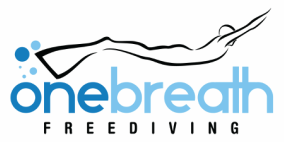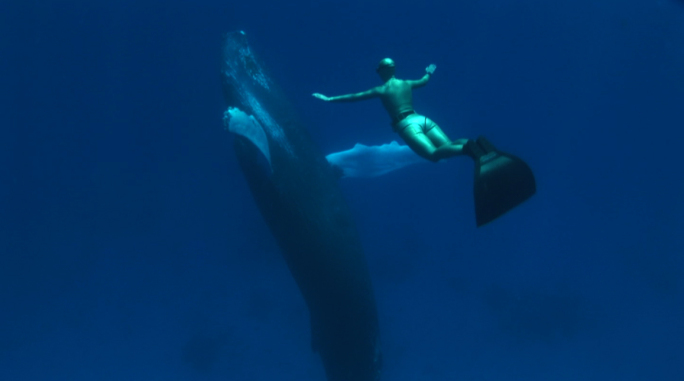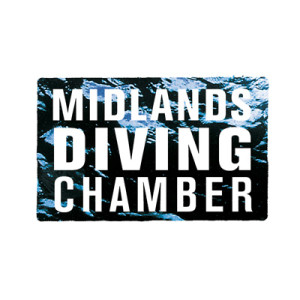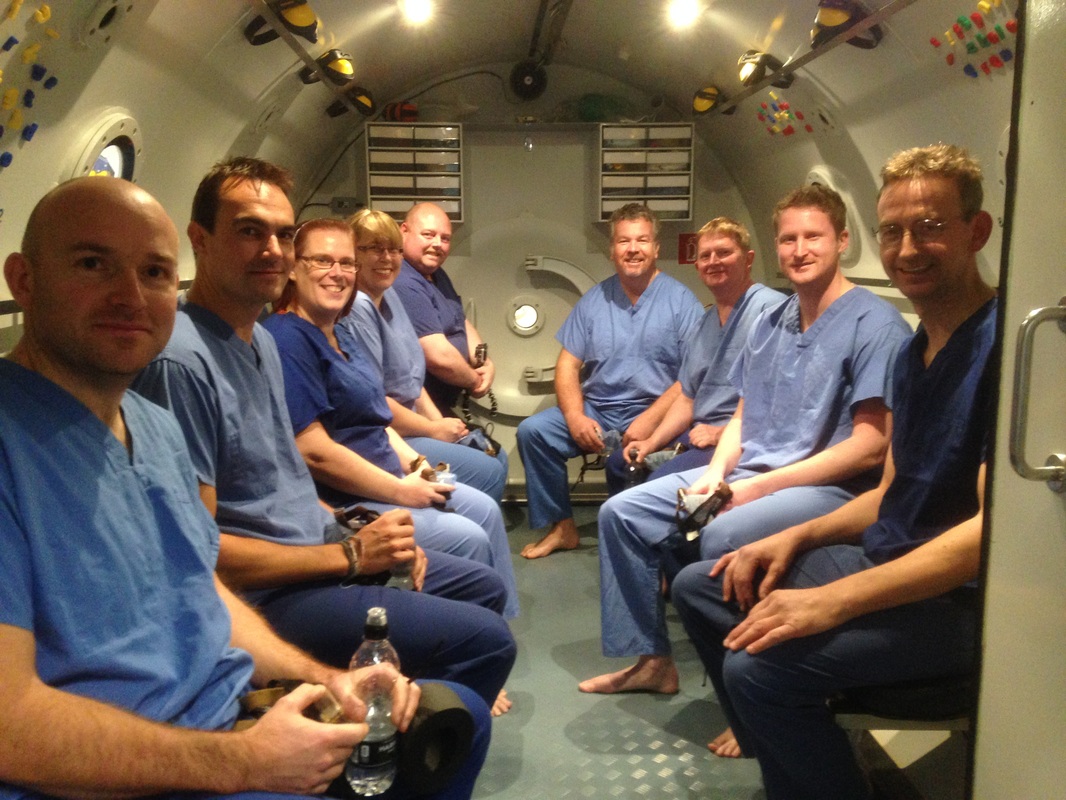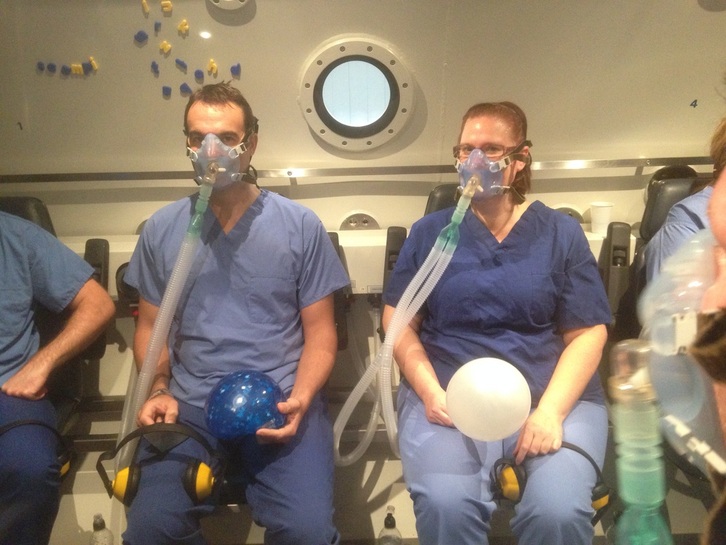This could be the answer! The studies seem to prove it. Watch the video to find out more....
|
Ever wondered if there is a natural way to 'cheat' at freediving? This could be the answer! The studies seem to prove it. Watch the video to find out more....
0 Comments
By David Watson, AIDA & PADI Master Freediver Instructor and Owner & Founder at One Breath Freediving, based in Malta
If there is one aspect in the sport of freediving that gets the most overlooked by new freedivers it has to be ear equalisation. Many people start freediving expecting it to be the physical breath hold or mental capacity to deal with being underwater to be the most challenging aspect of the sport, and are often surprised when it is actually equalisation of the middle ear that proves to be the challenge. Because it’s just as simple as pinching your nose and blowing, right? Well not exactly. Firstly lets refresh and look at Boyle's Law as to why we need to equalise our ears during a dive. On an airplane you can get away with a simple blow against a pinched nose (or sometimes just swallowing!) to help compensate for the change in pressure in the cabin, this because the pressure change in an airplane is relatively very small. In scuba diving, the other place where you might equalise your ears, you can descend slowly, come to a head up position (which makes it easier), wait some time for it to work (and breathe!) before carrying on. In freediving we are descending fast in a head down position which makes the whole process more difficult if not done correctly or efficiently. So here are the six most common mistakes of equalising for freediving that I encounter with my students as a professional freediving instructor: 1) Not being relaxed: Suddenly finding yourself upside down underwater and holding your breath is not conducive to being relaxed! Then trying to add another complicated skill (equalisation) makes things even more difficult. Solution: Practice breath holds dry to get used to that sensation and the urge to breathe. Practice pool dynamics or statics to get used to that sensation in the water. Use muscle relaxation exercises to give you greater awareness of your body and how you hold it. 2) Descending too fast: The quicker you descend the quicker you need to equalise. Fine if you are proficient at it, otherwise it can be hard to keep pace. Solution: Slow down the descent speed, use the discipline of Free Immersion where you can stop or slow easier using the line. Remember that as you get deeper you will become negatively buoyant so will still descend without even kicking or pulling. 3) Using the incorrect or an inefficient equalisation technique: FRENZEL technique (not VALSALVA) is the best method of freediving equalisation. Some people do it automatically, and some people need to learn it. Solution: Learn Frenzel technique and figure out the best tongue position that works for you and how to control the ‘gates’ (soft palette and glottis). You can do all of this away from the water. 4) Not equalising frequently enough: Freediving equalisation has to be done fast so you need to be ready so as to do it as often and as quickly as possible. Solution: Keep your fingers close to your nose ready to pinch quickly when needed. Equalise in a rhythm pattern in anticipation of greater pressure coming up, not just waiting to feel pressure before reacting to it, which will prove too slow. 5) Not equalising the mask: The mask often gets forgotten as an airspace and needs to be equalised via exhaling through the nose. If not done this can have a knock on effect to the ability to equalise the ears. Solution: Exhale into the mask when you feel the pressure on the face increasing with depth. 6) Not training or practicing: As with any skill, ear equalisation takes time to master. The control of the parts of the body involved does not often come naturally (who knew before how to ‘close your glotis’!?!). But practice makes perfect! You can’t expect to be good at something without practicing it repeatedly. Solution: Learn and practice, practice, practice! Fortunately most ear equalisation training can be done dry so you can practice any time before even getting in the water. Doing a little bit of training every day will pay off greatly in the long term. I hope this topic has provided some insight and will help you on your freediving journey! Of course the best way to learn a new skill is with an experienced freediving instructor that can observe and correct any mistakes and offer you correct advice and training solutions. You know that feeling. You've just flown out for your annual holiday to the dream destination and you have been planning this trip for the past year. Warm blue water awaits you, long fins at the ready, and then you feel it. The soreness at the back of your throat and the tickling in your nose....the cold you dreaded is here! Pretty much a disaster for any freediver on holiday
After suffering one recently I thought I would answer and look at a few of the questions and myths around the common cold: Are you are more likely to catch a cold on a flight? Yes. But it's not the circulating air on the plane as most people think. Simply being in a confined space with so many other people, increases the risk of germs spreading. ALTHOUGH, re-circulated air is more likely to give you sinus problems (another issue for freediving). Also, low humidity in the pressurised cabin increases the risk of infection. Why is a cold a problem for freediving? The cold virus is attacking the membranes of your nasal passages and your sinuses which makes them swell up and increase mucus production. This clogs up the sinus passages causing increased pressure and pain. During a dive air in the body expandes and needs to be able to move which it can't do as easily if these passages are blocked. So we know there is no cold cure, but what can decongestant medication do? As we all know, there is no cure yet for the common cold. Antibiotics will only fight bacteria, not viruses. Decongestants (tablets or spray) can shrink the swollen blood vessels in the nasal passages, lessening the pressure and helping with drainage. Is it safe to freedive using decongestant medication? Most research and advice on this topic is related to scuba diving (diving and descended under pressure for 30-45 minutes at a time). In scuba it is possible for the medication to wear off in that time causing problems on ascent. Freediving has different issues, most notably faster ascents and a lack of time to be able to stop and react if a reverse block (sinus pressure increasing from expanding air on ascent that is unable to escape the nasal cavity) occurs. Generally speaking it is risky, and anyway, if you are sick with a cold your body is fighting the infection and so is weaker and will therefore not be transporting oxygen as efficiently. Therefore you wont be feeling great and should not really be undertaking strenuous activity or pushing your limits! Are there natural solutions for reducing congestion? Inhaling steam such as in a hot shower or from a bowl of hot water. Adding an essential oil such a eucalyptus which has anti-inflammatory properties, can help. The hot steam dilates the blood vessels allowing increased blood flow and circulation, alleviates soreness and inflammation and liquifies mucus secretions making it easier to clear. Keeping hydrated also will allow the body to fight the virus quicker. Nasal irrigation such as a 'Neti pot' allows you to wash through the sinuses but this must be done with sterilised saline water and sterilised equipment and might feel uncomfortable if you are not used to it. Any other options? Snorkel!!! Most of the colour and marine life is in the top 0-10m of the sea, so you can still experience the wonder of being in the water and make the most of your holiday, even if you cannot dive down :) The Mammalian Diving Response (MDR)How the Human Body Responds to Submersion in Water: A Summery One of the questions I get asked most frequently as a freediving instructor is about HOW we can hold our breath longer. What is the 'trick', the 'secret' that can make it easier for us to be underwater deeper or longer. What many people don't realise is the the human body already holds most of the answers!
Here is an overview of the four main diving responses of the human body, collectively known as 'Mammalian Diving Response' (MDR): Peripheral Vasoconstriction Trigger: Breath-holding, facial immersion in water, increased pressure Response: Blood vessels in the extremities of the body (arms, legs) constrict to keep blood prioritised for the vital organs of the body FACT: A disadvantage of reduced blood flow is increased carbon dioxide and lactic acid build up, but tolerance to these can be increased through training Bradycardia Trigger: Facial Immersion in (cold) water, breath-holding Response: Heart rate slows down by 10-25% in untrained, or up to 50% in trained freedivers, thus conserving blood Oxygen FACT: In diving seals, heart rate has been measured going from 125bpm to below 10bpm during a dive! Spleen Effect Trigger: Breath holding and increased pressure on repetitive deep dives Response: The spleen contracts and releases more red blood cells which aid oxygen transportation in the blood FACT: The spleen is not an essential organ, but holds a reserve of blood and is important as part of the bodies immune system Blood Shift Trigger: Increased pressure on deeper dives Response: Blood plasma swells the alveoli of the lungs filling the chest cavity area to prevent barotrauma injury from increased pressure at depth FACT: Only as recently as the 1970's did scientists begin to understand this phenomenon once divers such as Enzo Maiorca returned from 50m+ dives, injury free! Sign up for AIDA3 (Intermediate) Course at One Breath Freediving to learn more about the Mammalian Diving Response and to reach new depths underwater.
The chamber can be used not only for treating decompression sickness in divers but also to promote healing in sick or injured patients. Among others, the chamber can be used by diabetics to treat ulcers and professional athletes to treat sporting injuries, speeding up the bodies natural healing process. Interesting aspects during the dive include the temperature change. Inside it reached 33c+, especially higher in the chamber, so while you are sweating from your head your feet are feeling cold! Equalization was different to in the water and had to be carried out much more frequently during the chamber dive. In the first 3m we must have already equalized in excess of 10 times! Medical scrubs are worn to prevent any accidents from static electricity in what was a high oxygen environment and seemed prudent after a recent accident in China. See: (http://www.dailymail.co.uk/news/article-2711646/Patient-killed-blowing-hospital-ward-decided-smoke-cigarette-undergoing-treatment-high-pressure-oxygen-chamber.html) Nitrogen narcosis is of course evident and at depth we tried to complete some spelling challenges which took longer and were infinitely more funny than would be the case at the surface! The pressure changes evident at depth were highlighted using pieces of neoprene, inflatable balls, balloons and exploding table tennis balls and not forgetting the ridiculously high pitched voices caused by pressure on the vocal chords :-) 100% oxygen was breathed at safety stops as part of the ascent and meant we actually came out of the chamber with less Nitrogen in the body than we went in with. DIVE BREAKDOWN
The dive was following a US Navy schedule; (170FSW) 52.1m/25min: 1928 Left surface 1929 arrived 3m first stop 1929 left 3m 1935 arrived 50m all well 1942 left 50m 1946 arrived 12m, 1min deco Air 1947 left 12m 1947 arrived 9m 1947 on 100%02 @1.9 pp02 max 1951 depart 9m 1952 arrive 6m @1.6 pp02 max 2015 depart 6m 2015 off 02 2016 on surface. Total deco time @ 29min with 28mins on 100% 02 Total dive time 48mins. With thanks to Ian and Tracey Watson and the staff at Midlands Diving Chamber www.midlandsdivingchamber.co.uk |
AuthorFind out what One Breath Freediving is up to with the latest posts on this blog page. Categories
All
|
